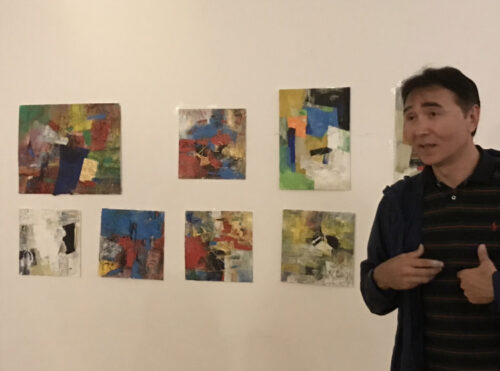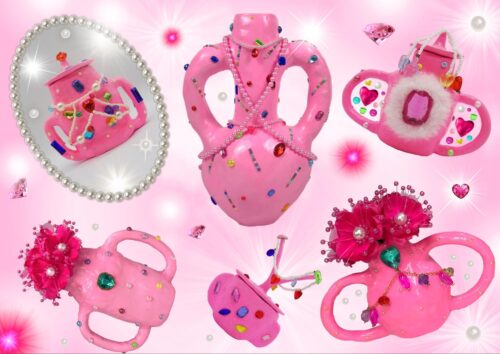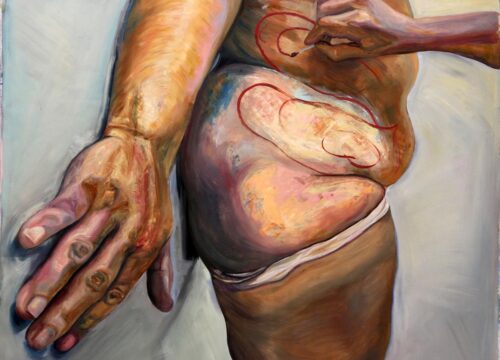British Museum under fire for using translator’s work in China exhibition without permission
Instead of crediting and compensating the translator, the London institution responded to the backlash by removing her work and the original Chinese text — poetry by Chinese feminist and revolutionary writer Qiu Jin — which was an initial part of the exhibition.
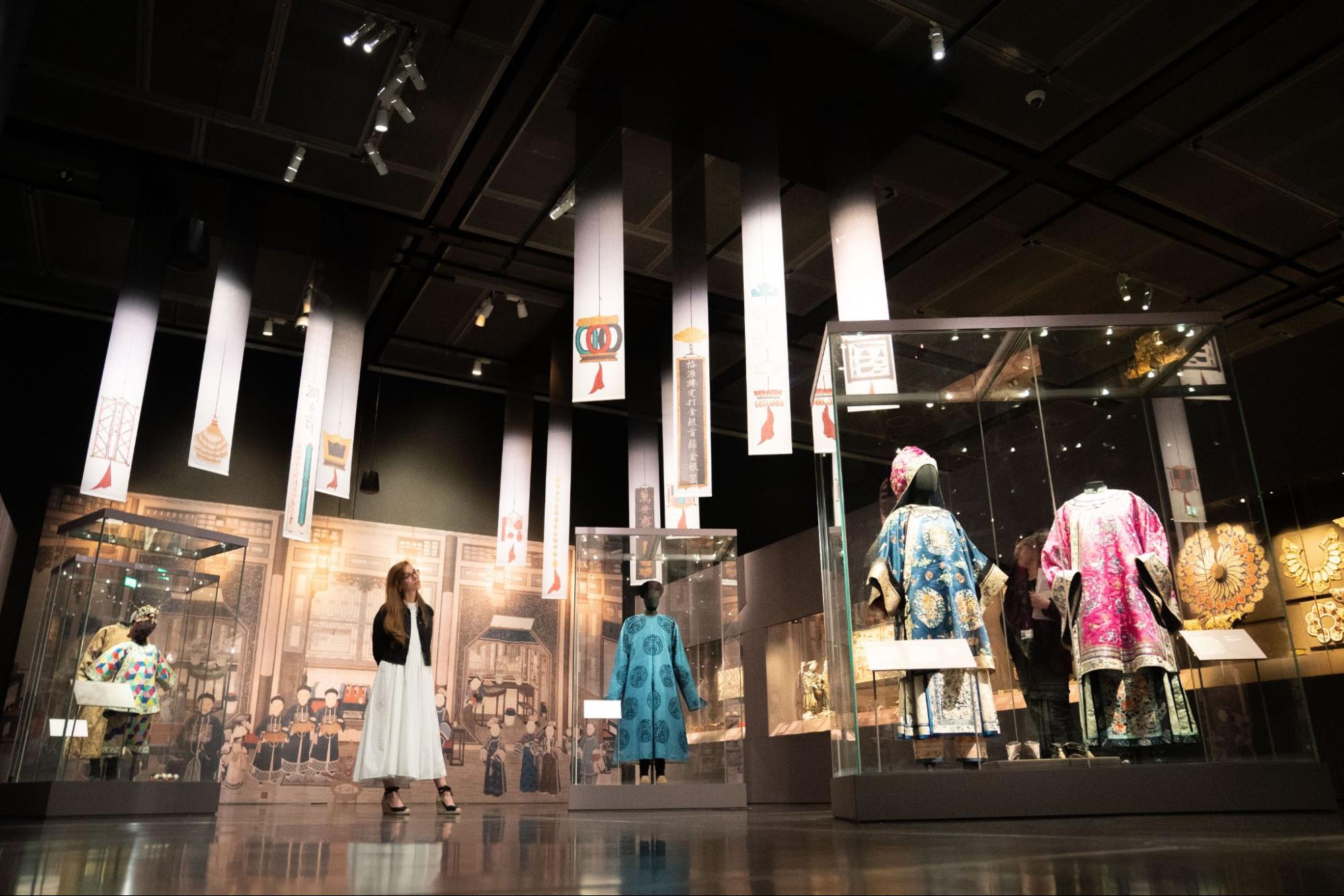
In May, when China’s Hidden Century, the British Museum’s flagship summer exhibition of 2023, opened to acclaim from critics and visitors, it wasn’t on the radar for Yilin Wang, an award-winning writer and translator who lives thousands of miles away in Vancouver.
But she kept hearing about it — in tip-offs from both acquaintances in the real world and strangers online. Wang was told that her translations of poetry by Qiū Jǐn 秋瑾, an early 20th-century feminist revolutionary and prolific author dubbed “China’s Joan of Arc” by the New York Times, were featured at the show, along with the original Chinese text.
China news, weekly.
Sign up for The China Project’s weekly newsletter, our free roundup of the most important China stories.
The problem is: Wang played no part in the planning of the exhibit, nor had the London institution contacted her about using her work. “I was shocked that such a high-profile institution would commit copyright infringement,” Wang told The China Project, recalling her initial reaction to the revelation.
Now, in a quickly escalating dispute that has been documented and dissected on Twitter, Wang is calling for a boycott of the controversial exhibition, vowing that she will fight to the bitter end to defend her copyright and moral rights to be credited for her work. “I strongly condemn their refusal to credit translators, even now. It adds insult to injury after everything they have done,” she said.
This situation was first brought to light on June 18 when Wang vented her frustration on Twitter. In a lengthy thread, the Chinese-Canadian author shared images of the show and its printed catalog, alongside her translations of Qiu Jin’s poems dating back to 2021, alleging that the British Museum took advantage of her translated English text without acknowledgement, pay, or permission.
Um, hey @britishmuseum, it's come to my attention that your exhibit "China's hidden century" uses my translations of Qiu Jin's poetry, but you never contacted me for permission. Please note this is a copyright infringement! How are you going to fix this?? #NameTheTranslator pic.twitter.com/yvbkvdVaSY
— Yilin @ The Lantern and the Night Moths is OUT NOW (@yilinwriter) June 18, 2023
In her plea for credit, Wang emphasized that as a professional translator working her way toward a book-length translation of Qiu Jin’s literary work and a recipient of a grant from Access Copyright, a Canadian content licensing solutions firm, she has spent months combing through more than 200 of Qiu Jin’s poems while researching her “life, relationship with the women in her life and history, and the historical context she lived in.” Wang noted that translating a poem usually takes “an average of 20–50 hours,” a process that involves “selection, background research, annotating, translation, revisions, and seeking feedback.”
Wang’s complaint instantly put the exhibition under scrutiny. Opening May 18 and on view through October 8, the show in question is advertised on the museum’s website as the first major global exhibition to showcase “the resilience and innovation of 19th-century China.” Featuring 300-plus objects, half from the British Museum and the rest loaned from 30 collections around the world, the exhibition is the result of a four-year research project, with an aim to highlight a unique period of “violence and turmoil” in Chinese history that “was also one of extraordinary creativity,” where new art forms emerged while technology and transport transformed society.
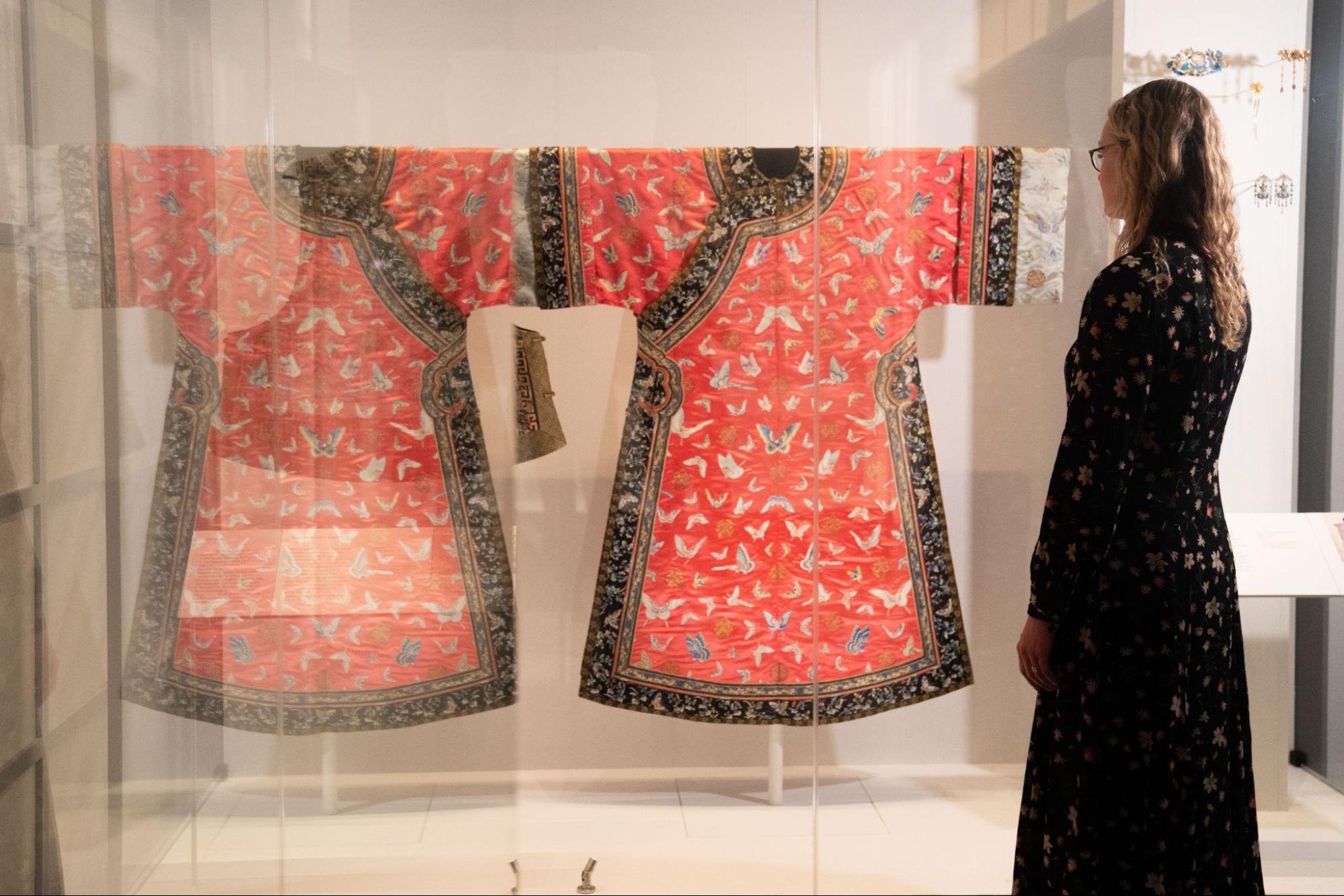
As an example of literary greatness and political activism in the late Qing era, Qiu Jin — who was executed at the age of 31 after a failed uprising against the Qing empire in 1907 — is among the key figures celebrated at the event. “She’s projected on a cinematic scale as the face of the future,” according to a review of the exhibition published by the Guardian, which gave the show five stars.
But for an exhibition that focuses on cultural creativity, “the British Museum should really acknowledge and pay for a translator’s ‘creativity,’” Wang tweeted.
As Twitter users rallied around her in support, the London institution addressed the mounting controversy in a statement released last week, saying that permissions and acknowledgement for Wang’s work had been inadvertently omitted due to an “unintentional human error,” for which the museum has apologized to the translator.
“The British Museum takes copyright permissions seriously. Across the range of our work, we make every effort to contact the owners of rights in text, images, print and digital media. This was a particularly complicated project and we recognize we made an inadvertent mistake and fell short of our usual standards,” it said, adding that it had removed Wang’s translations from the show and offered to pay her for the time her work was displayed.
In acknowledgement of the online backlash, the museum also denounced “personal attacks” directed at its staff on social media, noting that the exhibition wouldn’t have happened without their “scholarship and efforts.”
The response, however, rang hollow and lacked accountability, in Wang’s opinion. “It uses a lot of passive language without explaining what happened exactly, who was responsible, and how this would be avoided again in the future,” she said. “I do not accept their apology, especially given how condescending their response has been.”
Wang revealed to The China Project that after the statement came out, the museum offered to get her permission, but “changed their mind almost right away, in 24 hours, without even giving me a chance to respond.” Then, on Sunday, Wang was hit with an unexpected update: The museum removed both Wang’s translations and the original Chinese text of Qiu Jin’s poems. Without any of Qiu’s words being shown, the segment about her now only includes a brief introductory label and a two-minute loop video showing her silhouette in and out of focus.
“I was shocked that they would suddenly behave in this way when they had expressed interest in using the translations only 24 hours before and told the Guardian they took it down in ‘good faith,’” Wang said of the latest development in the saga. “They gave me an extremely unreasonable amount of time to respond given the time difference and the need to seek advice.”
When reached for comment on Monday, the British Museum told The China Project via email that it couldn’t “facilitate an interview at this time” and shared a link to its previous statement on the issue instead.
One curator, who asked to remain anonymous, told The China Project that they were glad that the museum issued a statement where it vowed measures to rectify the situation, stressing that because “exhibitions are hugely complicated undertakings,” mistakes can happen sometimes, “even with the best intentions.”
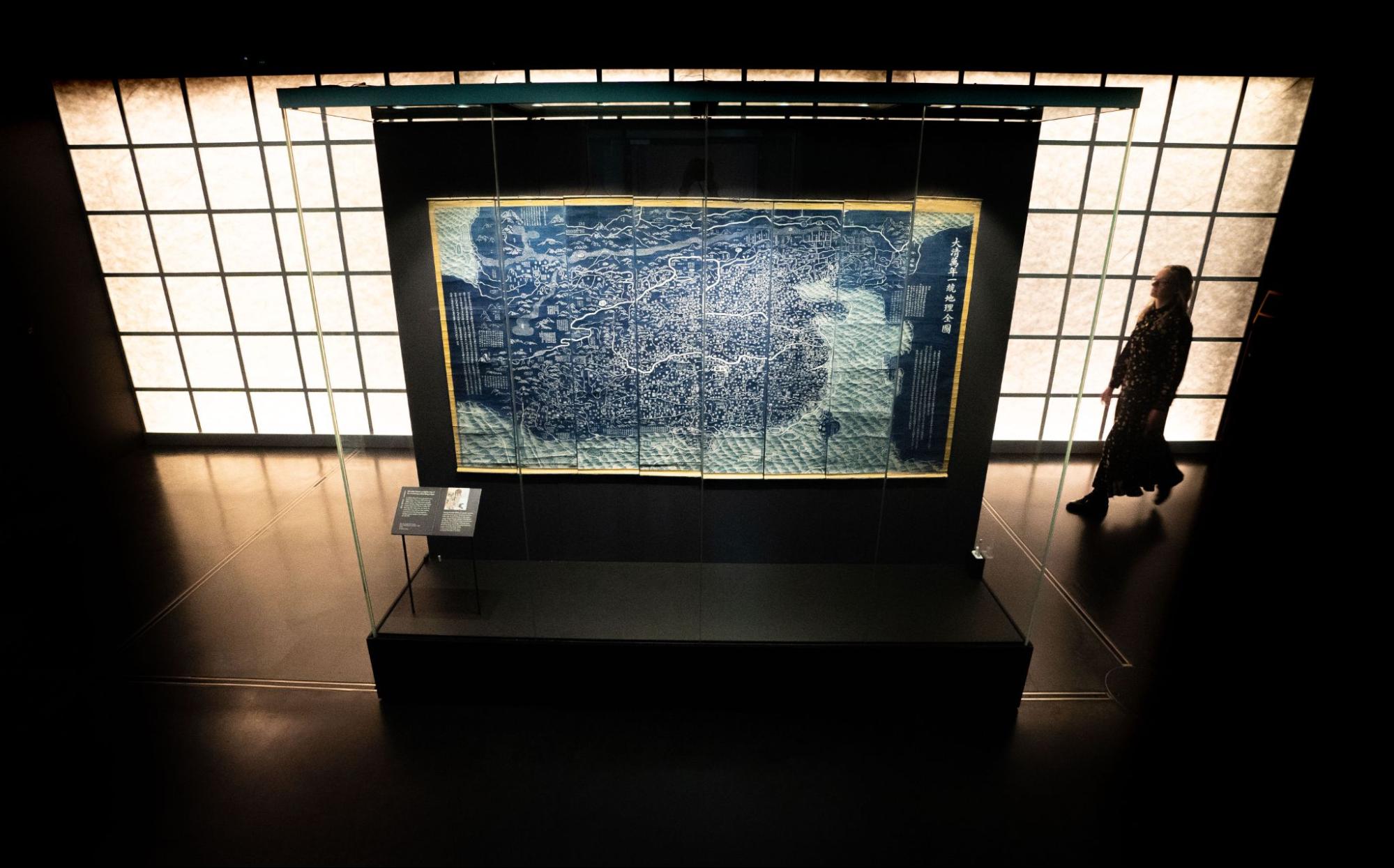
But critics say they are angered by the museum’s handling of the controversy as much as by the mistake that led to the controversy itself. “For an institution as big and well established as the British Museum, they should be setting an example for what to do and what not to do,” Kelly Zhang, a bilingual writer and Chinese-English literary translator based in Ottawa, Canada, told The China Project. “But in this case, I think they are like the perfect sample of what not to do in every kind of way. They just keep digging their heels in deeper.”
The British Museum is no stranger to controversy. Over the years, the centuries-old London institution has found itself in hot water for everything from problematic financial backers, such as oil corporations, to displays of racism. In 2017, the museum had to issue a public apology after a curator in charge of its Asia collection suggested that “using too many” Asian names on exhibit labels could be “confusing” to Westerners.
As home to millions of treasures obtained by Britain in its imperial days, the museum is also notorious for being one of the international museums least willing to engage in repatriation talks. Once described by a leading human rights lawyer as “the world’s largest receivers of stolen property,” the institution — despite decades of incessant criticism of its cultural imperialism — only recently started exploring ways to return contested objects such as the Elgin Marbles, which originally adorned the Parthenon in Greece, and Africa’s Benin Bronzes, which were looted by British troops in the 19th century and are now scattered worldwide.
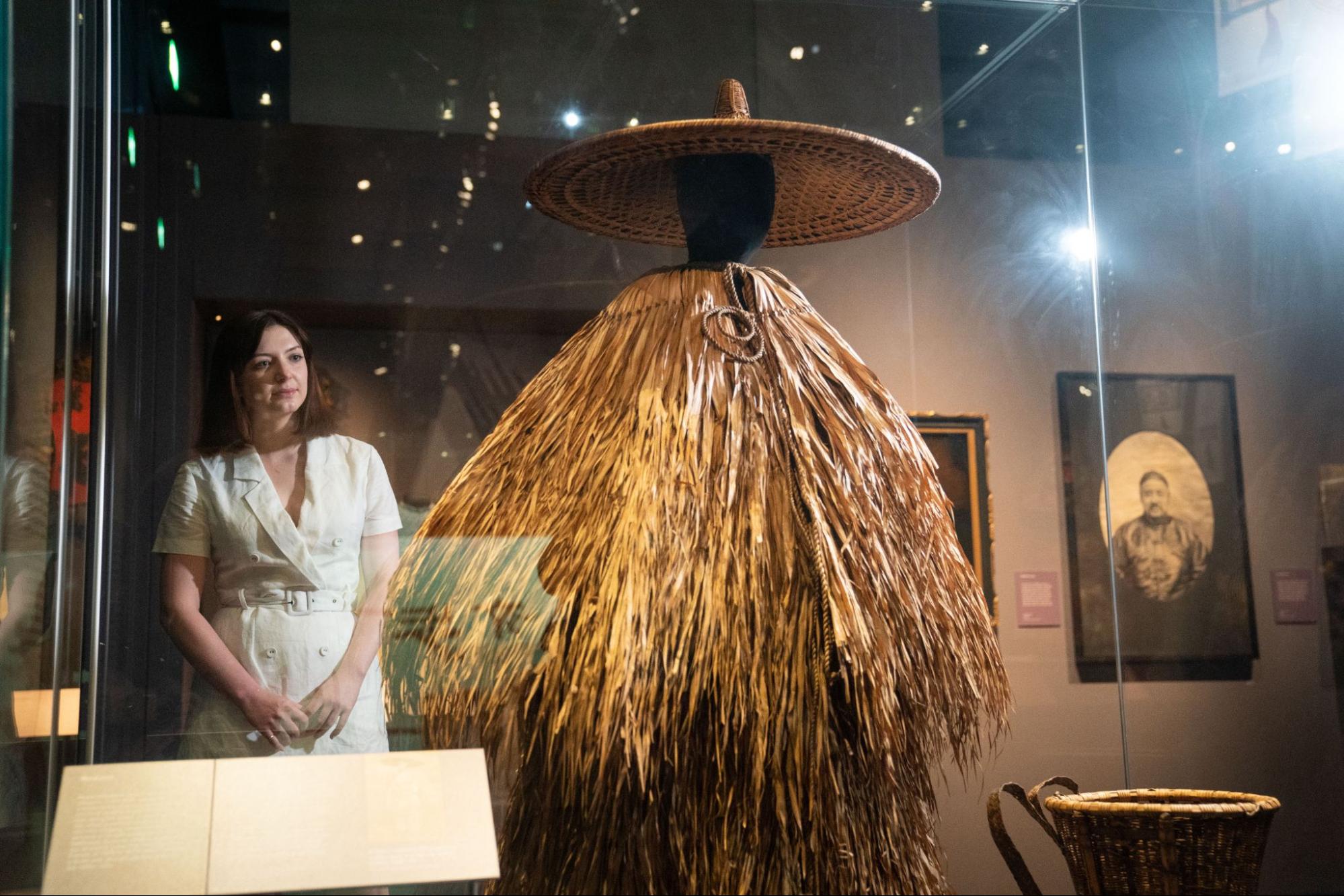
“Given how condescending they have been, I am now very seriously considering taking legal action,” Wang told The China Project. “They have already had so many opportunities to avoid this escalation, and if they want to do so, they should take actions to redress everything immediately.”
Today, Wang announced on Twitter that she has been working on a crowdfunding page in the hopes of receiving donations to support legal costs. The ideal outcome, she said, would be for the institution to give her “proper credit at the exhibit itself and in the book, as well as payment, increased to account for the fact they used my work without permission.”
But for Wang, the campaign is not entirely a personal plea for attention and credit. She also believes that the controversy is an opportunity to bring greater recognition to translators, especially women and people who belong to marginalized groups. “Translators’ labor needs to be respected. It needs to be seen as an art on its own, one that takes a lot of skill, knowledge, and labor,” Wang said.
In the translation world, Wang’s outspokenness on Twitter has struck a chord. According to Zhang, who translates prose and poetry between Chinese and English, with a special focus on children’s books, the controversy is reflective of a broader, deep-seated problem affecting translators, especially people of color working in the Anglophone space. The real issue underlying the controversy was “the general ‘invisibility’ and unappreciated work of translators as a group,” she said.
“There’s still a lot of misconception as to what translators do,” Zhang said. “Many people think we just have the knowledge of two different languages and we are basically translating one to the other. We might have machines that can do that nowadays. So, like, what’s the big deal? Like, what are you actually contributing? But it’s more complex than that. Translation is a form of art.”



